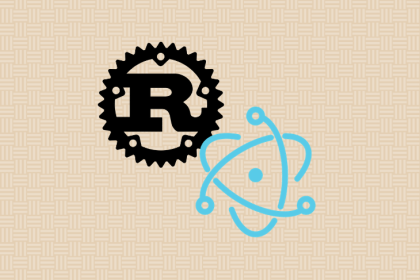
Overall, Rust’s email support isn’t outstanding — yet. But the Rust ecosystem is solid and the email story should improve over time.

JSON input validation is a core concern in any modern web application, and the Rust ecosystem already has some great tools for dealing with it.

In this guide, we’ll compare some of the most popular and stable database drivers and ORMs available for Rust.

Electron apps tend to be slow. The trick is to offload CPU-intensive tasks to other, faster languages, such as Rust.

Configuration management is a core concern in any nontrivial web application, and the Rust ecosystem provides everything you need and more.

To put it simply, JSON support shouldn’t be a concern for any Rust developer. It’s very much production-ready and arguably best in class compared to other mainstream languages.

The Rust ecosystem provides myriad tools for handling uploads and downloads in a web service, with options to asynchronously stream files for additional speed and flexibility.

Rust has plenty of good templating crates, including some that are stable and ready for production use. In this guide, we’ll compare a few of these crates and show you how to get started with each.

Modern compilers are complicated programs and may yield binaries that perform differently in response to a minor change in the source code. See what the Rust community has to offer for extracting and embedding assembly.

Serialization has always been a strong point of Rust. In this guide, we’ll compare 12 serialization crates in various states of production-readiness, considering API usability and performance.

In this guide, we’ll go over the basics of lifetimes and annotations and demonstrate how to work with them. We’ll also look at some common scenarios you might run into and walk through how to solve them with lifetimes.

With web frameworks like Rocket, developers can use Rust to build fast and secure web applications with very little boilerplate code.